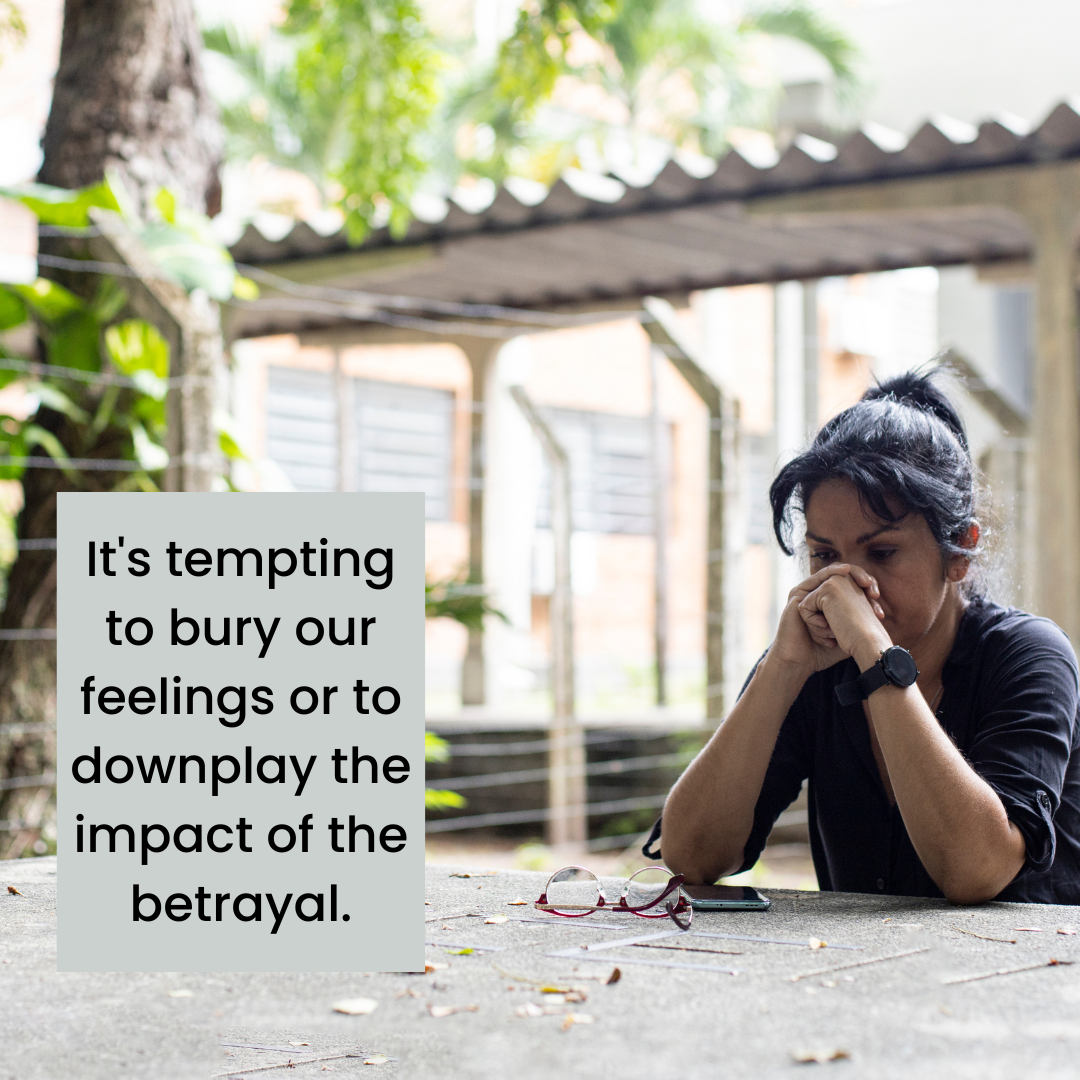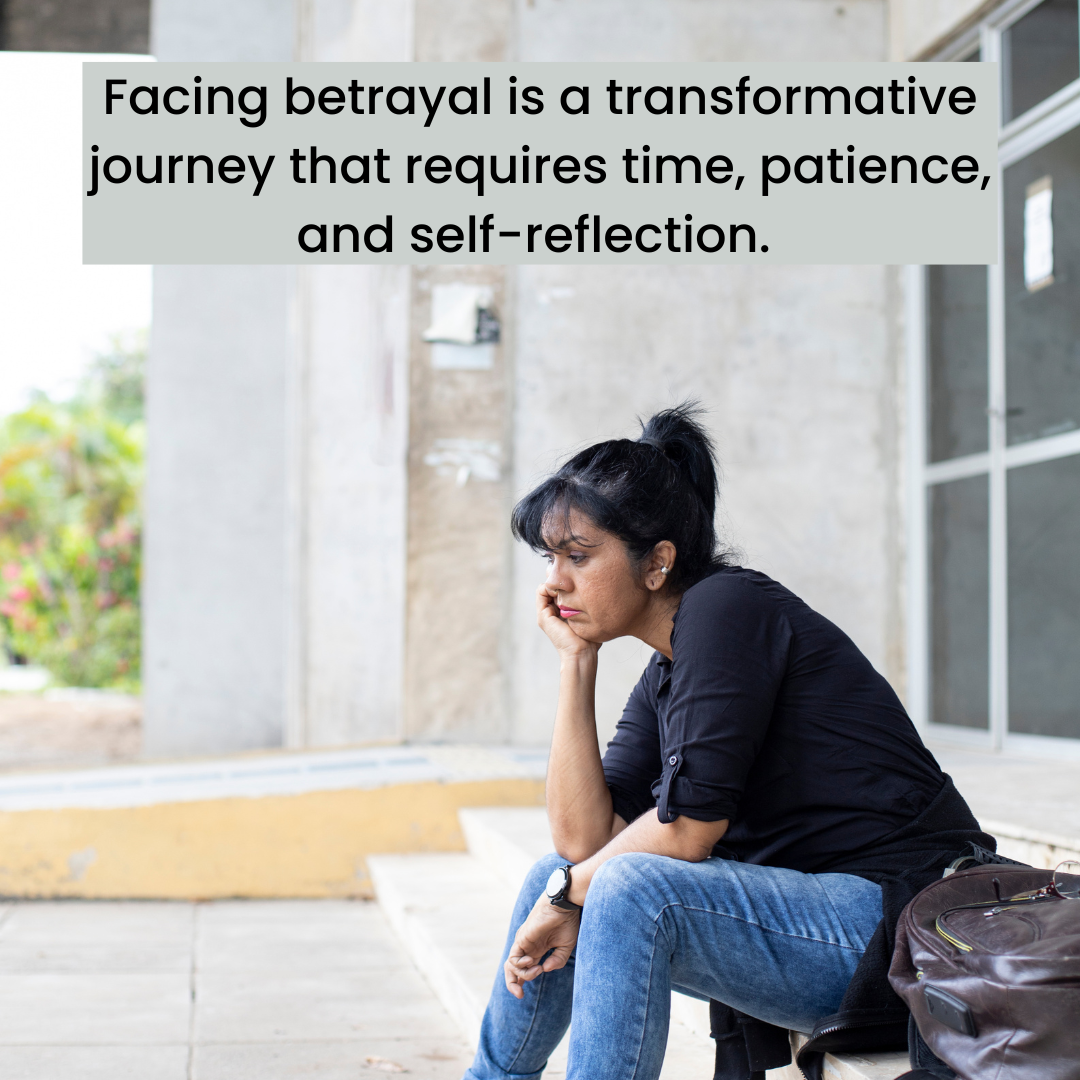Betrayal is a deeply painful and challenging experience that many of us will encounter at some point in our lives. Whether it comes from a friend, a romantic partner, a family member, or a colleague, the sting of betrayal can leave us feeling raw, vulnerable, and emotionally wounded. In the face of such a profound breach of trust, it is crucial to navigate the complex landscape of emotions that arise and to allow ourselves the space to heal.

Acknowledging the pain is the first step in facing betrayal. It’s tempting to bury our feelings or to downplay the impact of the betrayal, but doing so only prolongs the healing process. Instead, we must confront the pain head-on and give ourselves permission to feel it fully. This acknowledgment is not a sign of weakness; rather, it is an act of self-compassion and an essential part of the healing journey.
One of the initial challenges in acknowledging the pain of betrayal is coming to terms with the reality of what has occurred. Betrayal often involves a breach of trust, and the discovery of deception or disloyalty can be a devastating blow. It’s essential to allow ourselves to process the shock and disbelief that may accompany the revelation of betrayal. This initial phase is a crucial part of understanding the depth of our emotional response and laying the foundation for the healing process.
As we acknowledge the pain, it’s important to resist the urge to suppress or deny our emotions. Betrayal can evoke a wide range of feelings, including anger, sadness, confusion, and even shame. Each emotion is valid, and it’s essential to create a space where we can explore and express these feelings without judgment. Suppressing emotions can lead to long-term psychological and emotional consequences, making it even more challenging to move forward.
In facing betrayal, there is often a need to navigate the complex interplay of emotions. For example, anger may be directed not only at the person who betrayed us but also at ourselves for not seeing the signs or for trusting too easily. It’s crucial to recognize and process these layers of emotion, understanding that they are a natural part of the healing journey. Seeking support from friends, family, or a mental health professional can provide a safe space to express and process these emotions.
Allowing ourselves to experience the full range of emotions that accompany betrayal is a courageous act of self-compassion. It involves embracing vulnerability and acknowledging the impact that the betrayal has had on our sense of self and our relationships. While the pain may be intense, it is through this process of emotional exploration that we can begin to rebuild and redefine our understanding of trust.
In addition to acknowledging the pain, forgiveness is often a key component of facing betrayal. Forgiveness does not mean condoning or excusing the betrayal, but rather, it is a conscious decision to release the grip of resentment and anger. Forgiveness is a gift we give ourselves, freeing us from the emotional burden of carrying grudges. It is a gradual process that may require time and reflection, but it is a powerful step toward healing.
Cultivating self-compassion is another important aspect of facing betrayal. It’s common to blame ourselves for the betrayal, questioning our judgment or worthiness. However, self-compassion involves treating ourselves with the same kindness and understanding that we would offer to a friend facing a similar situation. It means recognizing that we are not defined by the betrayal and that our inherent worth remains intact.
As we navigate the path of healing, it’s essential to set healthy boundaries to protect ourselves from further harm. This may involve reevaluating relationships, establishing clear communication about expectations, and learning to trust again cautiously. Setting boundaries is an act of self-care and self-respect, allowing us to prioritize our well-being as we rebuild trust in our relationships.

It is an opportunity for growth and self-discovery, as we learn to navigate the complexities of human relationships. By acknowledging the pain, allowing ourselves to experience the range of emotions, and embracing forgiveness and self-compassion, we can emerge from the shadow of betrayal with resilience and a renewed sense of self. In doing so, we reclaim our power and pave the way for a future defined by trust, authenticity, and genuine connection.
